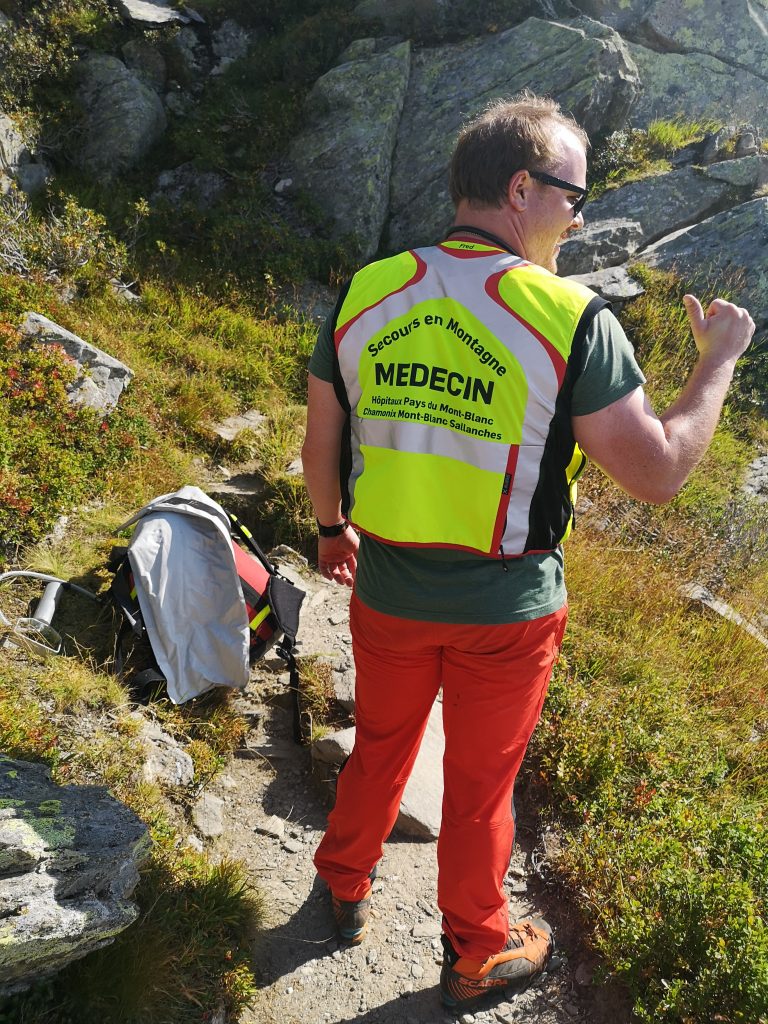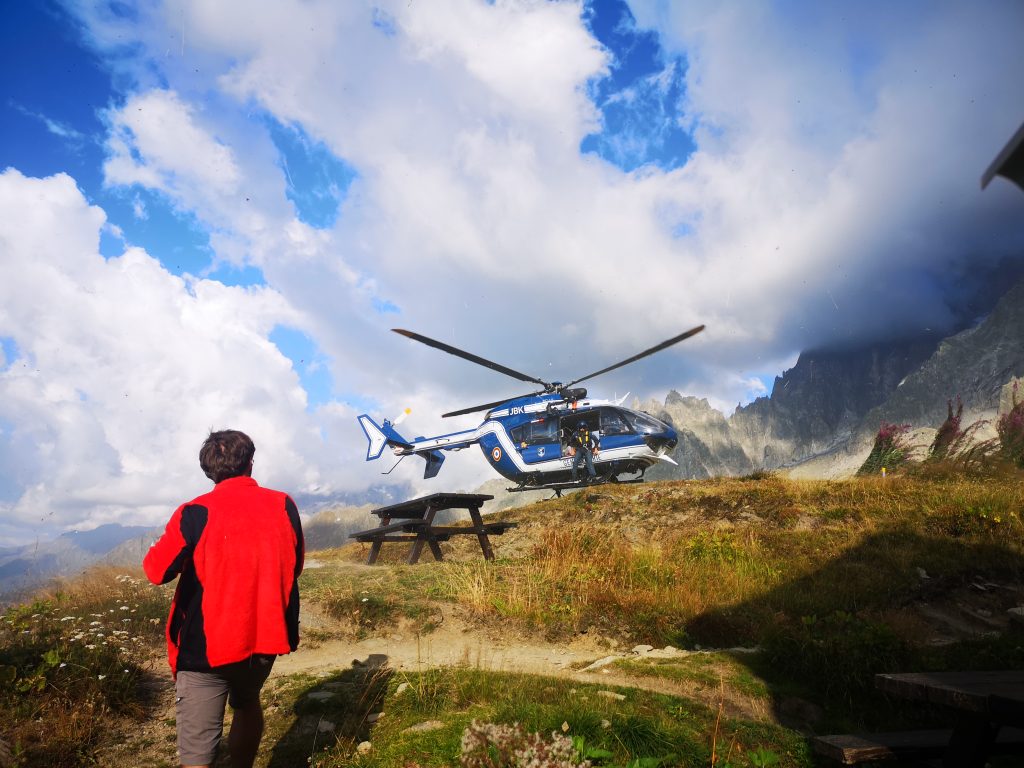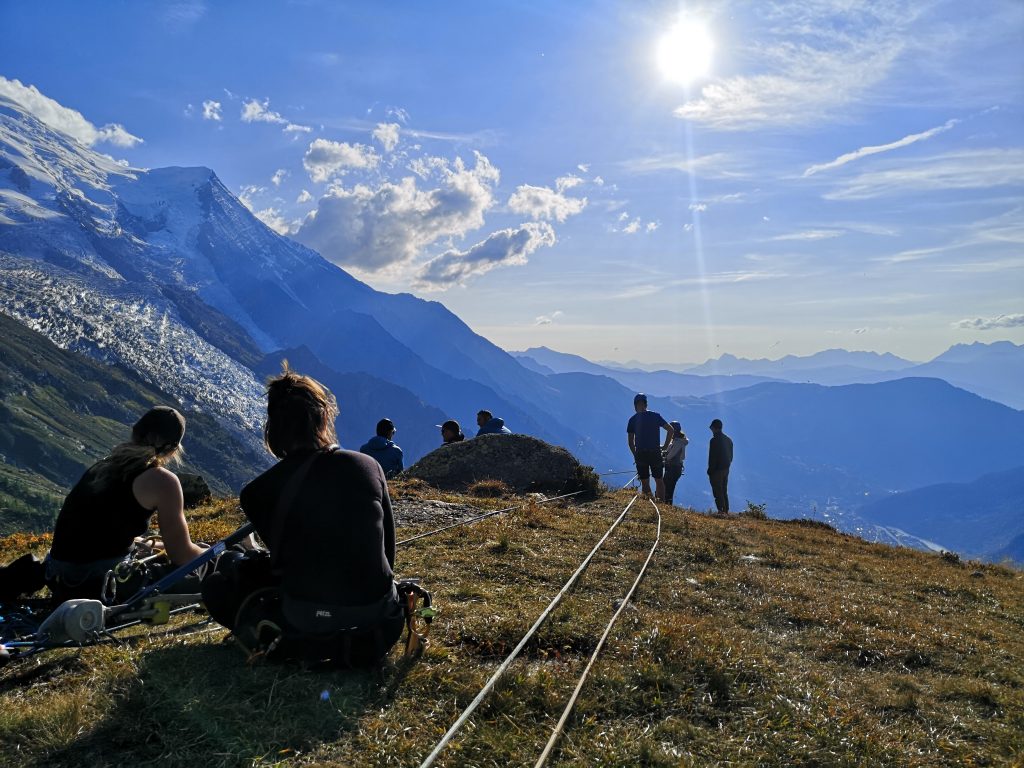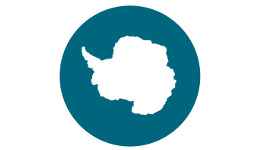Dr. Nick Smith is the ESA-sponsored medical doctor spending 12 months at Concordia research station in Antarctica for the 2020-21 season. He facilitates a number of experiments on the effects of isolation, light deprivation, and extreme temperatures on the human body and mind.
Sunday 13th December
Hello again. Bit of a dramatic one this time around, sorry for that. As you read on (if you read on) please remember that in the same way that a murder novel written in first person must mean that the writer survives – so am I here writing to you, happy and in good spirits. If I could bring myself to use an emoji in formal writing, I’d use the little chap with the sunglasses.
Two thousand and twenty. What a year. I’m quite sure we were all very sick of it and have are pleased to move on to 2021. It has been so full of ‘unique’ experiences that frankly I’ve forgotten the meaning of the word. A year full of such irregularity that surely, realistically, it couldn’t possibly exist? This is what I would have said in 2019 had you presented me with 2020’s agenda because by March I had been offered a very unusual job in Antarctica, I had unpredictably met another human being who to me has swiftly become the most important one out of the 7 billion options, and I would witness and work through the start of perhaps the worst global health crisis ever known. If this were a very boring book about my life, 2021 would have to do something downright spectacular to keep people reading.

On the 10th March 2020 I received this email while out shopping with mum. It left me a little dazed – after all the deliberation and the uncertainty – to have flown to Paris for interview, alongside thorough medical and psychological assessment and to have gotten the job? My life has taken a non-traditional route so far but even by those standards this was quite a drastic turn. I stopped in my tracks, looked up at mum, and with a very pale face said, “I got the job!”. She was ecstatic! I’m quite sure she couldn’t wait to get rid of me. We carried on with the shopping, a little dumbfounded, and perhaps we let this news take us via the champagne aisle, I couldn’t possibly remember.
After celebrations with my family and returning to work in Northern Scotland, the realities of the pandemic began to surface. SARS-COV-2 was rearing its ugly head and the changes necessary were rapidly becoming apparent. I was a foundation year two (FY2) doctor on a general medical ward due to rotate through to psychiatry in early April. Everything changed. The routine upheaval of all NHS foundation doctors to rotate specialties was cancelled. Rotas changed. Staff were redeployed and elective services were postponed or cancelled. The entire structure and purpose of my hospital changed to face down this terrible beast and being next-door to the infectious disease unit my ward undertook a great deal of this. We performed many roles during the first wave of the pandemic including screening for COVID all the way through to treating known positive cases. Our role changed every few weeks to absorb the strain placed on our health service and to ensure we all could do our duty for our patients. My cognitive bandwidth was entirely occupied by some of the strangest, most unpredictable, saddest and hardest days of my life. As far away as Antarctica had seemed before; it had never been so far away as it was then – it barely registered on my mind at all. Concordia Station is roughly 10,000 miles from Aberdeen but at that moment, it may as well have been 10 million.

June came, the first wave peaked, and restrictions began to ease – a good sign of general improvement. Things began to change for the better. My now partner and I met for the first time after three months of waiting. What an outstanding human. Work calmed and the 90+ hour work-weeks no longer dominated my existence. Concordia and Antarctica started to creep back into my conscious. Soon it was July and I attended a virtual meeting to brief me on the projects I would be implementing during my winterover; effects of isolation and confinement on sexual security, social dynamics, resistance to stress, mindfulness and risk-taking behaviour all featured, amongst others. A fascinating bunch regardless of the setting, but to be able to implement these projects at Concordia Station – very much viewed as space on earth – would be an opportunity afforded to very few on and off the planet. In a moment of reflection, I felt that I and the winter crew who choose to give their time to these studies will be making a direct and tangible contribution toward progress to revisit the moon and long-distance space-travel. A pretty cool feeling.
The following months, however, were not cool. This period is usually an exciting whirlwind tour of Europe including project-specific training, rescue medicine and briefings on life at Concordia. There are opportunities to meet other doctors travelling to the French Antarctic and Sub-Antarctic territories and importantly the other members of the winter crew. Baseline data collection for most of the projects is usually performed and training is finalised. After this one can leave Europe for Antarctica with a good understanding of each project and practical experience of each of them.
Enter, COVID.
The measures put in place to keep COVID at bay presented changed everything. The trickle-down effect of government-level last minute changes in travel restrictions made planning ahead very difficult. I lost opportunities for practical experience when my training moved online, and the training that wasn’t possible to move online meant I lost time with family and loved ones during periods of quarantine on my return to the UK. My meeting of the winter crew was delayed until much later than usual, which also meant a knock-on effect of later baseline data collection.

“But why not skip this year and come back next summer?” I hear you ask. Other polar and Antarctic organisations made this difficult decision; to leave their stations unoccupied for another year. However, this is impossible with Concordia Station. Because of its extremely remote location on Dome C, if Concordia station was left alone it would be lost to the icy desert. So as they say in theatre, the show must go on.
Thus, regardless of countless hurdles to jump and mountains to climb, my objective remained the same: good quality science. I was determined to do the job to a high standard and prepare as much as possible given the circumstances. Looking back as I write this, the adaptability and flexibility I employed at that time have become essential skills that amongst others I continue to use and develop. This was the first of a thousand learning opportunities and a part of why I wanted to do this job in the first place; a personal and professional challenge. One of my mantras in life is ‘anyone can do anything’ and I remind myself of this often. I definitely qualify as ‘anyone’, so doing a good job was entirely within the realms of possibility and even probability. As the departure date approached, with the support of my partner, family and ESA, I felt ready to tackle everything the next stage would throw at me. Despite the difficult and odd circumstances, I had gotten off to the best start I could and was ready to say goodbye and leave for upwards of 14 months.
It is important to note that even though this period was testing and difficult; I completely agree that the reasons why it became difficult were absolutely necessary safeguards of public health. Despite the challenges, I’m glad we could still continue with our mission safely and responsibly.

Phew. I told you that was going to be a bit macabre but remember – while I do not believe in luck, I do believe that you should not lose sight of positivity, and I am extremely grateful that for me 2020 ends with a wonderful new partner and a dream job.
How lucky.
Thank you for getting this far. Next time I will be leaving home and arriving at Concordia. Maybe I’ll even spoil you with some pictures.
Until then
Nick




Discussion: no comments